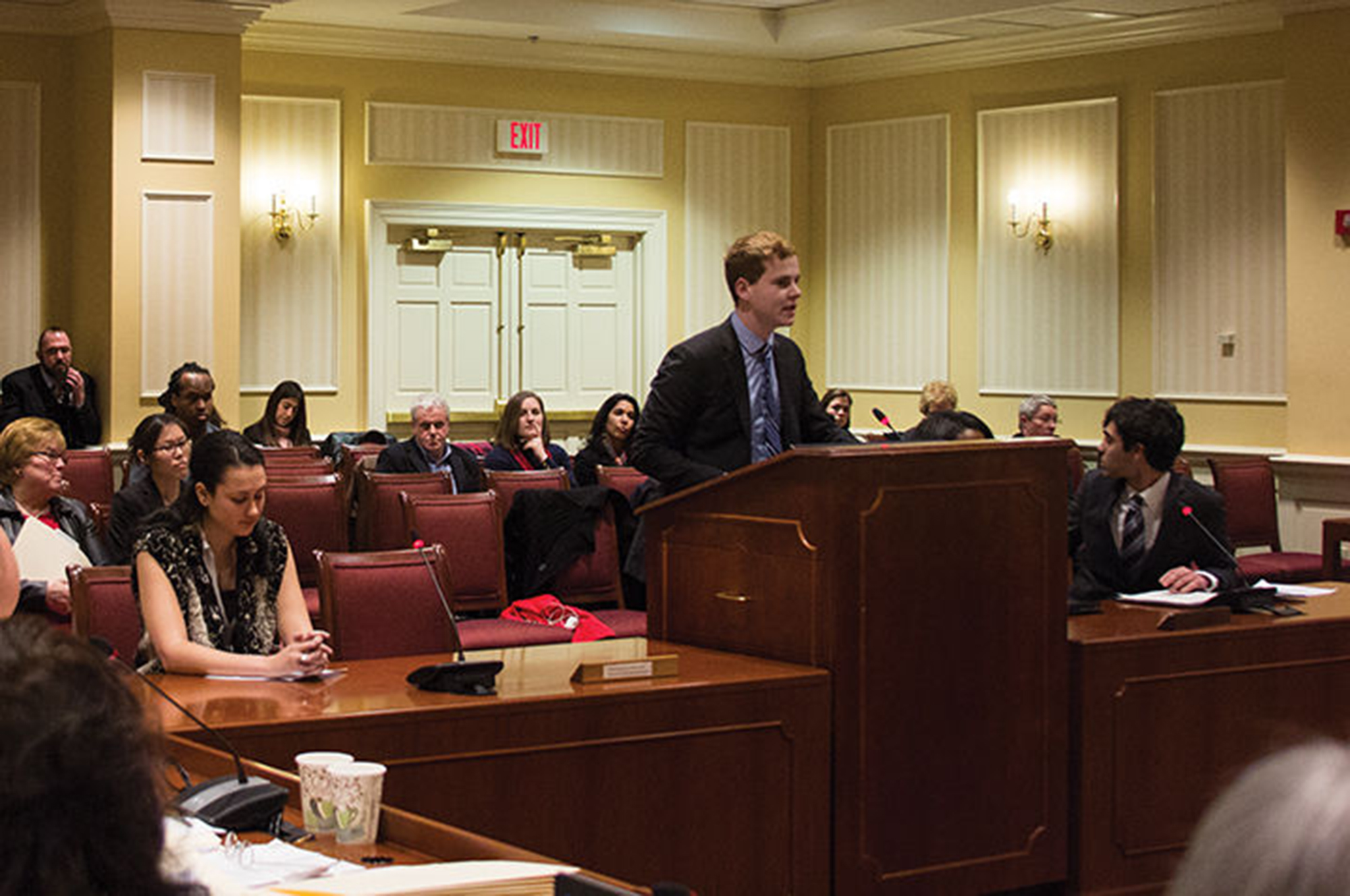SGA representatives testified in front of the Maryland Senate Budget and Taxation Committee Wednesday in favor of a bill that would encourage businesses to pay interns in exchange for tax credit.
The bill, which Sen. Nancy King introduced Feb. 5, would award tax credits for 10 percent of each intern’s earnings, up to $1,000. Student Government Association President Patrick Ronk and Director of Government Affairs Jake Kotler testified at the hearing.
The bill is awaiting a committee vote. If it passes committee, the full senate will vote on the bill; its approval would make the bill law.
Unpaid internships take advantage of “students whose skills benefit the company while not paying these students in return,” the SGA wrote in a written testimony for the committee. “While the experience gained during an internship is important, in no way is the return normally equitable for students.”
Senior American studies and government and politics major Sarah Horn interned in Baltimore for Kids in Need of Defense during the fall 2015 semester. While she gained valuable experience, her employer did not pay for her gas or travel costs, she said.
The internship “was good for experience and everything, and that enriches you a little bit, but you’re basically paying to have an internship,” she said. “Driving to Baltimore back and forth three times a week really took a lot out of my bank account. I really struggled with that a lot.”
Several majors at this university require students to hold an internship position in order to graduate. About 80 percent of graduates from this university had an internship during their undergraduate career, according to data collected by the University Career Center & The President’s Promise, which surveyed graduates from August 2014 to May 2015.
“Twenty years ago, internships might have been, really, a good extracurricular activity to pad your resume,” Ronk said. “Today they’re really a necessity.”
A 2014 report by the National Association of Colleges and Employers, which surveyed 43,864 students from 696 institutions including this university, found that 61 percent of 2014 graduates had an internship and 46.5 percent of those internships were unpaid.
In approaching King’s office with the idea for this bill, the SGA drew from similar legislation in other states, Kotler said. North Dakota also rewards businesses that pay their interns with tax credit up to 10 percent of the intern’s earning, but it caps that credit at $3,000.
Ronk said it is important to remember that interns are still college students juggling other responsibilities, including paying tuition and pursuing extracurricular activities.
The bill “allows [students] to balance their internships with their other responsibilities so they don’t have to do 80 hours a week just to stay above water,” he said.
The SGA is awaiting a committee vote on the bill, Kotler said.
“When the choice for students becomes either a paid job that does not supply practical skills and potential for career advancement or an unpaid internship, we have failed,” the SGA wrote in its written testimony.
Senior staff writer Grace Toohey contributed to this report.



